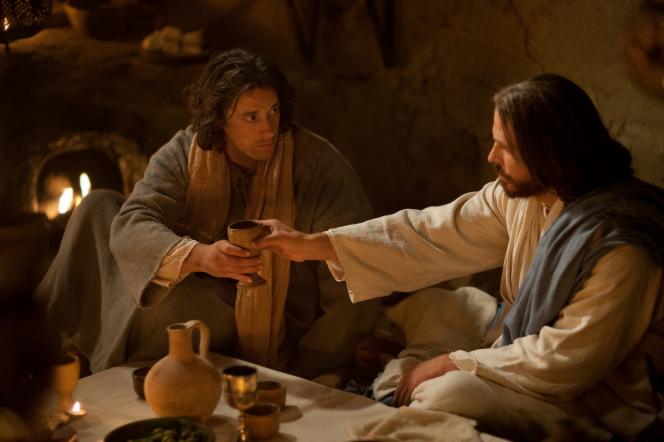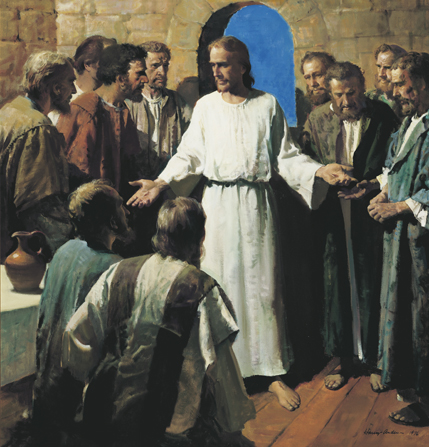Before I describe the conversation to you I feel like you need a little bit of background on me.
I am something of a minimalist. I try to live by Sarah Lazarovi's "Buyerarchy of Needs" (a play off of Abraham Maslow's hierarchy of needs).
This, along with the quote "Have nothing in your houses that you do not know to be useful or believe to be beautiful" from William Morris are the guided principles of my consumerism.
My daughter was not familiar with the United Order, so I described it to her, definitely oversimplifying things, with this statement, "Basically you gave everything you had to the church, and then they would give you back anything you needed." I followed up with, "That didn't mean no one had nice things - but for example, if you needed a ball gown for a fancy dance, you got one. If you didn't need it, someone else got it."
My daughter's response: "That sounds like something you would love."
You have no idea how much I would love it. So so much.
This essay is about sacrifice. I think minimalism and the law of consecration are very much tied to the law of sacrifice. But sacrifice is so tricky.
Young mothers tend to sacrifice so much that they don't get enough to eat, enough sleep, or enough mental health support. This leads to devastating outcomes like postpartum depression, and suicide.
Spouses of abusive partners tend to sacrifice so much that they stay in abusive relationships, which leads to depression, suicidal thoughts, and in some instances murder or suicide. When children are involved, the heartbreaking outcomes can be devastating for these kids.
Members of the church who make covenants to obey and live the laws of consecration and sacrifice often give so much of themselves that they become disillusioned with at least the church, and in extreme cases even deny the gospel of Jesus Christ.
The problem with sacrifice and the law of consecration is pride. Pride is a barrier.
Being a survivor of abuse I have found some bitterness in my heart toward the law of sacrifice. I sometimes find myself saying in my head "But I sacrificed everything, and it got me into an abusive relationship where I felt robbed of my very being, where my children's quality of life was diminished, where my safety and the safety of my children was not guaranteed. Why should I sacrifice? People will just take advantage of me." In my mind, living the laws of sacrifice and consecration were the gates to abuse. Indeed, very often they are. It is easy to be taken advantage of if you sacrifice and give. So how do we protect ourselves from abuse when we are living the law of sacrifice?
Here is the not-so-easy answer I have come up with: we don't.
Oh, I believe in boundaries, definitely. But we have to be careful that our boundaries come from a place of Doctrine & Covenants 121:43 - "when moved upon by the Holy Ghost" - rather than from a place of pride.
The past several years I have been recovering mentally and spiritually from an abusive relationship. I have learned a lot about boundaries, and at the same time I have developed a lot of pride.
Ironically, pondering the law of sacrifice as I have been doing the past several months seemed to increase my feelings of pride. The elusive balance between sacrifice and boundaries was something I couldn't quite grasp until a month or so ago when I had this inspired thought:
The Savior gave everything. Not just His time and His talents and His love. He gave His very life. His life. And who appreciated him? Very few people. What happened to him? He was abused. In fact, in the words of my beloved Isaiah, "He is despised and rejected of men; a man of sorrows, and acquainted with grief: and we hid as it were our faces from him; he was despised, and we esteemed him not."
That thought was humbling, and I try to use it whenever I want to withhold something - time, money, love, compassion, my talents, whatever it is. I try to come back to that thought. He gave everything - He sacrificed everything and He didn't stop when people abused Him.
Now, am I saying that you should find ways to be abused and taken advantage of? No way. Remember that the Holy Ghost might prompt you not to give - but you have to be very very in tune with that and make sure it isn't pride motivating your stinginess.
I am saying that when you find yourself in a position to give of your time, talents, energy, compassion, love, etc and you want to withhold because you are worried about being taken advantage of, or you start feeling those begrudging feelings of "But who is going to take care of my needs?", remember the Savior and give anyway.
And then take.
Take the Savior's yoke. Take and take and take from the Savior. That is the place to take. No spouse, no friend, no child, no church leader, no human being will ever be able to give you everything you want and need (remember that thing about pride?). So you have to take it from the Person who is immune to Satan's tricks and lies. The only human who has no pride. Not one drop. The only person capable of giving you absolutely everything you need.
And sometimes the only thing you can get from Him is the assurance that some day you will be able to enter into His rest.
 |
| Surrender by Reflections of Christ |
A friend of mine once said that she imagines our reunion with the Father will consist of us falling, mentally, emotionally, and spiritually exhausted into his arms, and He, with tears streaming down his face, will say, "That was hard, wasn't it? I am so glad you are safe at home with me now."
How do you find a balance between sacrifice and mental health? How do you keep pride out of the picture? Have you learned to rely on the power of the Savior?










 (
(